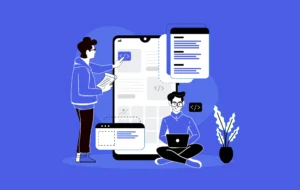The UCU Technology Innovation Awards (UTIA) is an annual initiative that fosters innovation through the recognition and reward of outstanding ICT innovations at Uganda Christian University. UTIA provides a platform upon which outstanding ICT innovations can be showcased and propelled to further success.
The initiative was established in 2023 by the Uganda Christian University’s University ICT Services directorate and since its establishment, various innovations have been recognized and awarded in different ways.
UTIA 2024 will mark the 2nd round of the awards.
The winners shall be announced during the last day of the UCU Tech Week on Friday, 31st May 2024
Objectives of the UCU Technology Innovation Awards
Objective:
Discover how digital tools like social media and online platforms shape the way we make friends, share experiences, and interact at university. Explore the impact of these technologies on our daily social behaviors and community norms.
Statistics/Background:
Did you know? Over 60% of students use social media daily, influencing everything from how we study to how we socialize. Understanding these effects is essential for creating a supportive and inclusive campus environment.
Project Challenge:
Dive into the digital world to see how it changes our campus life. Look at social media, apps, and other digital tools to find out how they affect student interactions and behaviors.
Examples:
Here are some areas you can look into but don’t limit yourself to only these ones:
Who Should Participate?
This track is perfect for any UCU student curious about how our digital world shapes our real lives. Whether you’re studying psychology, sociology, or communications, or just love exploring new ideas, there is a place for you here.
Submission:
Create a simple video, a slide presentation, or a short written piece that shares what you have learned about digital impacts on campus life. No need to be a tech expert—just bring your observations and ideas!
Evaluation Criteria:
Projects will be evaluated based on the following criteria:
Objective:
Explore how digital platforms can be utilized to strengthen and share Christian values and community among students.
Statistics/Background:
Research shows a significant trend among young adults turning to online resources for spiritual and religious purposes. The adoption of digital platforms for faith-related activities has been on the rise, highlighting a critical opportunity to foster faith communities digitally, especially in scenarios where traditional gatherings are limited.
critical opportunity to foster faith communities digitally, especially in scenarios where traditional gatherings are limited.
Project Challenge:
Design and implement digital strategies that can enhance the spiritual lives of students. Consider how these platforms can facilitate prayer groups, worship services, Bible studies, and support networks within the university setting.
Examples:
Here are some areas you can look into but don’t limit yourself to only these ones:
Who Should Participate?
This track is ideal for students interested in theology, digital media, social work, or anyone passionate about using technology to foster community and faith. It’s also great for those looking to deepen their spiritual practice or find new ways to connect with like-minded peers.
Submission:
Participants are encouraged to submit their innovative ideas in the form of a detailed proposal. Proposals should outline the concept, expected impact, and how it can be implemented. While creating a prototype is not required, participants who develop a working model or digital mockup will receive additional consideration, showcasing how their idea could be practically applied.
Evaluation Criteria:
The presentations will be evaluated based on:
Objective:
Explore innovative digital solutions that can transform teaching and learning experiences at the university. The focus is on enhancing educational practices through technology, making learning more engaging, accessible, and effective.
Statistics/Background:
Studies indicate that integrating digital tools into the classroom increases student engagement and improves learning outcomes. For instance, universities that have adopted interactive learning platforms have seen a 25% improvement in course completion rates and student performance.

Project Challenge:
Develop ideas or prototypes for digital tools, platforms, or methodologies that can significantly enhance the teaching and learning environment. Consider the needs of diverse student populations, including international students and those with disabilities.
Examples
Here are some areas you can look into but don’t limit yourself to only these ones:

Who Should Participate?
This challenge is open to all UCU students, especially those interested in using technology to improve how we learn and teach. Whether you are studying computer science, design, or just passionate about new educational tools, this track is for you.
Submission and Presentation
Participants should submit their ideas as detailed proposals. Proposals should explain the problem being addressed, the proposed digital solution, and the expected impact on teaching and learning. While prototypes are not required, they are highly encouraged and will be considered as a bonus, demonstrating the practical application of the idea.
Evaluation Criteria:
Projects will be evaluated based on
Creativity and Innovation: Originality of the solution and its potential impact.
Impact: Potential to significantly enhance teaching and learning.
Practicality: Feasibility of implementing the proposed solution within the university setting.
Presentation: Clarity and persuasiveness in the presentation of the idea.
Important Submission Guidelines: